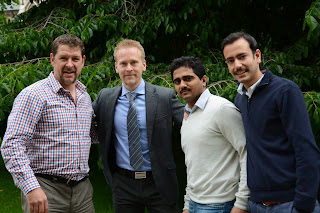 |
| Long exposure at Allans Beach, Otago peninsula |
A recent article from The Financial Times, "The future of European MBAs," debated the role of technology in the delivery of MBA programmes and the future of the degree. I encourage you to read the article and offer the following excerpts here.
Most professors think the disruption being caused by the availability of cheaper online education will actually raise standards at top-flight schools.
Simon Evenett, academic director of the MBA programme at the University of St Gallen in Switzerland, seems to speak for the majority when he says he can see a future dominated by the three Rs – retrenchment, relevance and rigour. He sees the three Rs as a process which will see some MBAs close while the top programmes become even better at what they do.
“A shake-out is coming which will force MBA programmes to focus on what they should be doing,” Prof Evenett says, there will be more concentration on the transformation an MBA is supposed to bring, as well as a response to demand from employers for an ability to work across cultures. “It will put an even greater premium on quality,” he says.
Peter O’Connor, dean of academic programmes at Essec, agrees that online MBAs will remain second tier: “For me, the value of an MBA is the value an employer places on the MBA. They are going to do their homework. Certainly, the feedback we have at this present moment is they don’t value online learning so much.”
Working against online learning is the emergent requirement for greater social competence, that many professors mentioned. "The blunt fact is that the world’s business schools do not prepare people to be fantastic colleagues, they prepare people to be fantastic analysts and that has to change,” says Stephan Chambers, MBA director at the University of Oxford’s Saïd Business School, adding that schools need to train people that you would want to work with.
Prof Chambers says the MBA of the future will have to respond to its future global context. He thinks MBA programmes will be supporting the movement towards greater corporate responsibility while at the same time preparing students to deal with what he calls “unparalleled global risks” including pandemics and food and water shortages.
“What we need are individuals who are capable of stitching all that together,” he says.The important skills of the future, will include decision-making in different cultures and linking science to industry. “I think the world is desperately short of people who can handle that amount of complexity."
Every element of our Otago MBA is designed to provide personal attention
to you; to educate you as a whole person; to engage you in classroom experiences characterized
by rich dialogue and shared inquiry in pursuit of knowledge concerning the most
compelling business problems facing global business leaders today.
David





